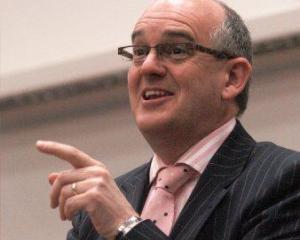In an email response to questions by the Otago Daily Times, Health Minister Tony Ryall said yesterday there was no expectation a 2% pay increase over 18 months to hospital staff announced last week would be passed on to non-board staff.
"There has never been a direct link and there won't be now."
"The Government has indicated to DHBs that it expects them to pass on specific funding increases in three areas: GP visit subsidies, the medicines budget and aged-care subsidies. The rest is up to them."
There would be more money in the health budget in the next financial year, but the increase would not be as big as last year.
"This means everyone in health is having to be more efficient, just like everyone else in the economy."
This also applied to non-government organisations (NGOs) and those people with district health board or Ministry of Health contracts.
"I think New Zealanders know things are tight and everyone has to carry some of the burden, including the health sector."
At the Otago District Health Board meeting last week chairman Errol Millar gave the clear message that there was no spare money to pass on in its contracts with the community sector.
Unions with members in the community health sector are concerned the gap between health board staff and those in the community doing similar work is set to increase unless there is specific action to address this.
Service and Food Workers Union national secretary John Ryall said home-care assistants employed in the community were paid about 25% less than board employees doing similar work.
He would like to see the Government rule that extra money for aged care be passed on to workers without anybody "clipping the ticket".
New Zealand Nurses Organisation national industrial adviser Glenda Alexander said base rates for some nurses outside the boards were fairly close to what boards paid, but that was not the case for all.
While all workers doing the same sort of work should be paid similarly, in the "pretty tough" climate she considered it important to invest in engaging those doing the work to look at ways to improve efficiency of services.
In the Bay of Plenty board area, for instance, an investment of $45,000 in training had resulted in $1.5 million savings.
Public Service Association national secretary Richard Wagstaff said the NGO sector had an important part to play in healthcare, but there was quite a gulf between the wages paid there and in the health boards,Devolving services from boards to the community should not be seen as a way to cut costs because wages in the sector were lower.
New Zealand Aged Care Association chief executive Martin Taylor said retention of staff in the sector had improved during the recession.
Turnover of registered nurses in December 2008 had been about 40% compared with 22% in December last year.
This indicated people were more focused on job security than increasing wages.



